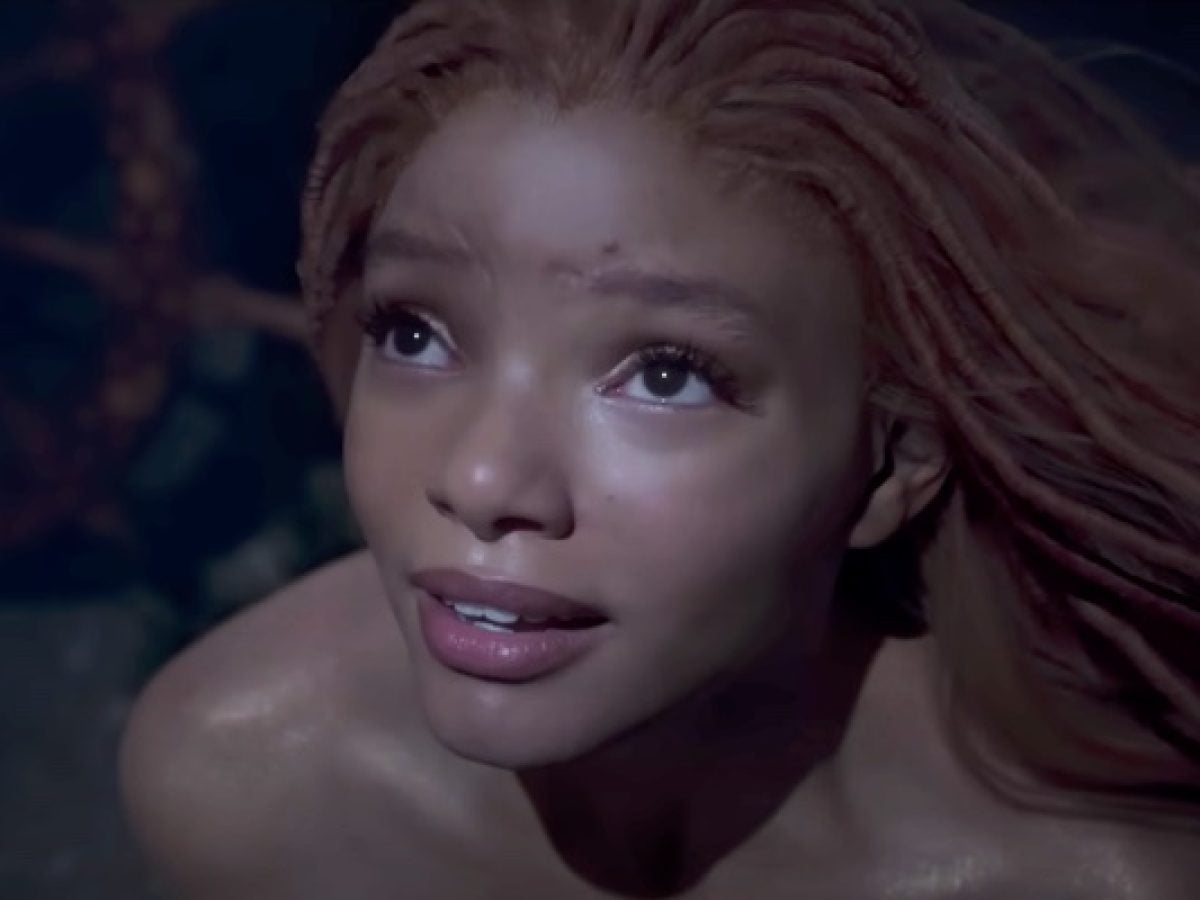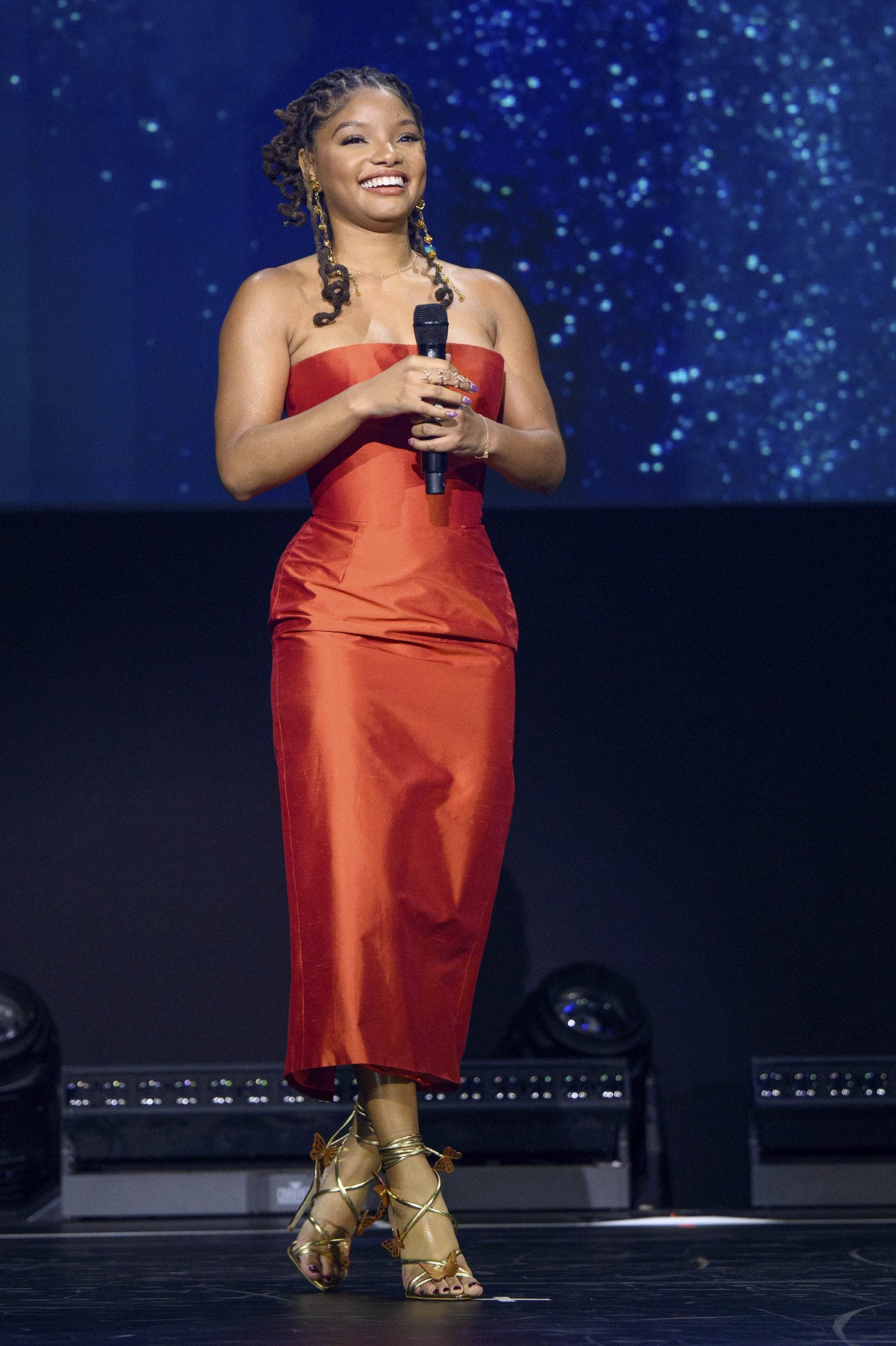
It is not uncommon for racists to unravel when their fantasy’s legs give out. This time’s cause is the first teaser trailer for Disney’s live-action The Little Mermaid remake starring Halle Bailey. Critics are having a difficult time receiving her—a Black woman with locs and a platinum voice—as the titular star.
The complaints about The Little Mermaid vary in content, but all are baseless. Some are up in arms because a once-white character is now being portrayed by a Black woman. “I don’t think the issue is that she’s black. I think the issue is that they’re changing a pre-exing [sic] character,” one Reddit user wrote. Let’s capitalize that “B” and get serious about what the real issue is—a Black person having space in a fictional, yet still historically white, world.
Beginning in the 1950s, Black activists believed their tax dollars were being used to fund white-only public pools. (It was true.) Residents correctly felt they had a right to enjoy a communal offering. According to the New York Times, in response, the pools primarily were sold to private entities for $1. They also were promptly drained so Black people wouldn’t get to enjoy them. In another instance, a “swim-in” at a St. Augustine, Florida hotel led to the inn’s owner pouring acid into the pool to scare the Black protestors.
You can’t drain the ocean though.
“Diversity is great but when you use that to change pre-existing characters, it feels forced…Just make a new movie, instead of changing characters, especially for remakes and live-action since they’re counting on the nostalgic values,” the Reddit writer also said. (Let me also note that the phrase “diversity is great” is doing some heavy lifting.)

Others take issue with the upcoming film because they believe Ariel’s Blackness is the doing of the woke left. It is an extension of the deadly ‘Great Replacement Theory’ claiming Black people are dimming white people’s influence. Though “woke” is a term popularized in the 21st century by a Black woman and is meant to encapsulate the experience of being Black, it has since been weaponized. It is now a pejorative, commonly used to refer to Black people in a negative way. However, we all know what they really want to say.
As Bailey is the target of racist attacks, multiple media sites are under fire for asking if the Emmys, and high brow awards in general, are still meaningful. It is not lost on viewers that these questions come as Sheryl Lee Ralph, Quinta Brunson, Lizzo, Nneka Onuora, Zendaya, Bridget Stokes, and Ashley Nicole Black (with many of them making history with their wins) took home awards. In fact, two of the stories use photos of Ralph proudly holding her statuette, a move that feels intentional. Black women are showcasing their talent in a way the white masses simply were not prepared for. That is no one’s problem but theirs.







Furthermore, in defense of Bailey’s casting, Ariel is a mermaid. A mythical creature that will never appear in the world we inhabit, unlike the very real Black people who have been portrayed by white people in film and on television. In 2007, Angelina Jolie played Mariane Pearl, the Afro-Cuban wife of murdered journalist Daniel Pearl. Then, actor Joseph Fiennes was Michael Jackson in a now pulled 2016 episode of Urban Myths. We also can’t forget the suggestion that Julia Roberts was to portray Harriet Tubman in a feature film. The Black community taken aback by those roles is fair because white actors were called on to replicate the experiences of a Black person.
In the Reddit post mentioned earlier, a (removed, but still viewable) chart likened Ariel being Black to Rapunzel not having hair as if to say her story is purposeless without white skin. It is telling that even in ancient, imaginary realms, anti-Blackness is still top of mind.
This Ariel, Halle’s Ariel, is a Black girl. No tweets attempting to explain why it would be impossible for an, again, fictional, sea-dwelling fish-girl to be Black, or vows to avoid watching the film, will change that. An exclusionary, white world is not what Ariel wished to be a part of.








